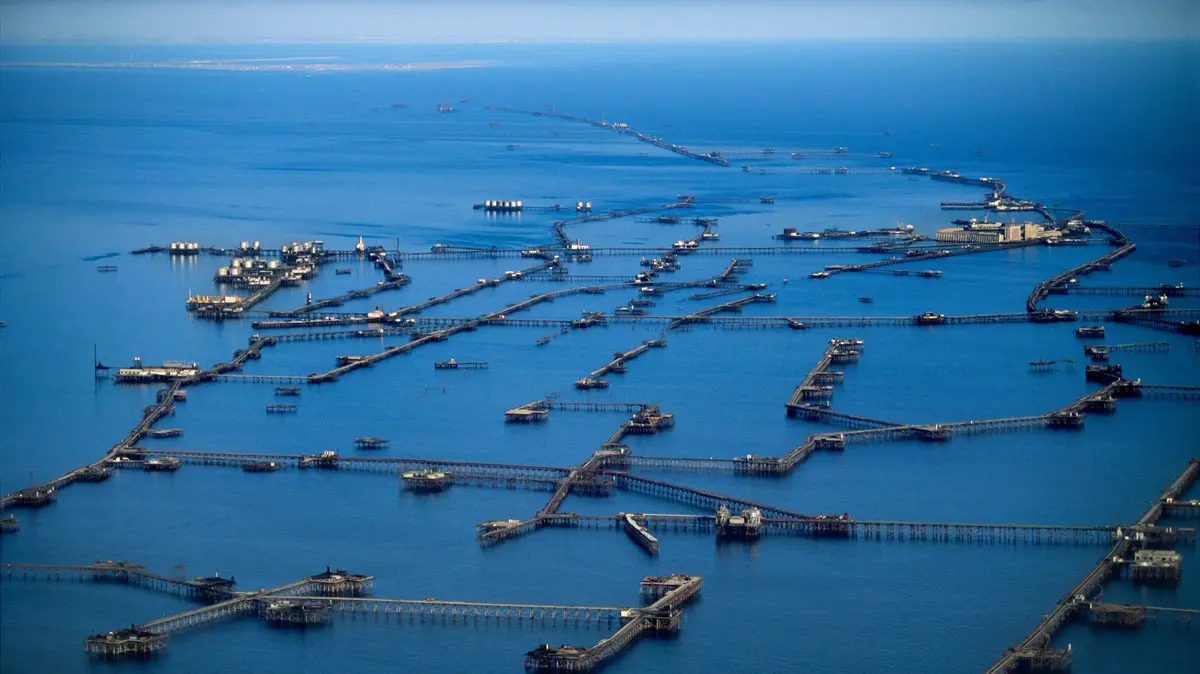The price of a barrel of oil rose above $100 on Thursday for the first time in more than seven years, after Russian President Vladimir Putin announced a "
military operation
" in Ukraine.
Back to previous episodes during which the barrel crossed the symbolic threshold of 100 dollars.
LiveUkraine: Zelensky orders 'inflict maximum casualties' on Russian forces
2008, the year of all records
After crossing the symbolic threshold of 100 dollars in early January, for the first time in their history, the two black gold references reached their historic highs on July 11, at 147.50 dollars for Brent and 147.27 dollars a barrel of WTI, listed in New York.
A combination of factors is driving prices up: geopolitical tensions, from Iran to Nigeria to Pakistan;
the tense balance between supply that is leveling off and demand driven by emerging countries, led by China;
the realization that reserves are limited and increasingly difficult to access;
finally, a bulimia of investment funds for raw materials.
The funds have used oil as an anti-inflation investment but, in a vicious circle, they are fueling higher prices by driving up crude.
After the bankruptcy of the American bank Lehman Brothers in September, this logic is reversed.
Now fearing deflation, investors are shedding oil, especially as they urgently need cash.
Prices collapsed, down to 36.20 dollars in December for Brent from the North Sea and 32.40 dollars for WTI.
The year thus ends on massacred prices, with supertankers transformed in certain ports into floating warehouses.
Read alsoGas, petrol, cereals… What impact can the Ukrainian crisis have on prices?
2011 and the revolt in Egypt
The threshold of 100 dollars per barrel was crossed again in January 2011. Prices had been pushed up by worries linked to the Egyptian revolt, the market then fearing the risk of the spread of protest movements in the Middle East.
The Arab Spring will also have led to the fall of former Tunisian President Zine el-Abidine Ben Ali and has shaken the regime of Syrian Bashar al-Assad during the year 2011. If Egypt is not an essential producer of he black gold, the country is home to two major oil transport routes, the Suez Canal and the Suez-Mediterranean (Sumed) pipeline, thus explaining the nervousness of the market which feared disruptions in the supply of crude.
2012 Iranian oil embargo
The year 2012 began with an oil price above 100 dollars a barrel, propelled by the tightening of economic sanctions against Iran, suspected by the West of wanting to acquire atomic weapons under cover of a civilian nuclear program.
For its part, Tehran threatens to interrupt its deliveries of black gold to Europe, contributing to exacerbate concerns about the world's supply of crude.
An embargo on Iranian oil was decided by the European Union at the beginning of 2012. Combined with the decline in purchases by Iran's main Asian customers under pressure from the United States, crude exports from Iran are halved.
Much of the oil produced in the Gulf countries transits through the Strait of Hormuz, a strategic passage controlled by Iran, which threatens to close it.
Tehran and the major powers finally sealed in November 2013 in Geneva a first historic agreement to contain the Iranian nuclear program, in exchange for an easing of economic sanctions.
Read alsoUkraine: European stock markets collapse at the opening
2012 to 2014, tensions in the Middle East
The price of crude briefly fell below the 90 dollar mark per barrel in June 2012, weighed down by the economic crisis in the euro zone.
Until 2014, oil prices fluctuated almost continuously above 100 dollars a barrel, supported both by a tightening of international sanctions against Tehran and geopolitical tensions in the Middle East, in particular because of the Syrian conflict.
At the end of 2014, oil prices began to plummet until they fell below 50 dollars per barrel at the beginning of 2015, in particular because of the American shale oil which flooded the market.
SEE ALSO
- Vladimir Putin announces "a military operation" in Ukraine



/cloudfront-eu-central-1.images.arcpublishing.com/prisa/SD75LX5OYJHF7H7TKLOMS5ZSNM.jpg)





